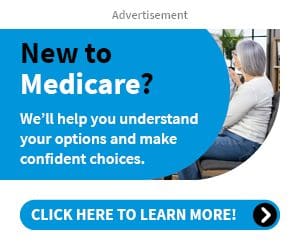Medicare Part D: Understanding Prescription Drug Coverage
Introduction: Unlocking the Benefits of Medicare Part D
Medicare Part D provides essential prescription drug coverage for millions of Medicare beneficiaries, helping to alleviate the financial burden of prescription medications. Understanding the intricacies of Medicare Part D, including coverage options, formularies, and enrollment processes, is crucial for beneficiaries to access the medications they need while managing healthcare expenses. In this guide, we’ll explore the ins and outs of Medicare Part D, empowering beneficiaries to make informed decisions about their prescription drug coverage and optimize their healthcare benefits.
What is Medicare Part D?
Medicare Part D is a voluntary prescription drug benefit program offered by private insurance companies approved by Medicare. Here’s an overview of Medicare Part D:
- Prescription Drug Coverage: Medicare Part D provides coverage for prescription medications, including both brand-name and generic drugs. Covered medications vary depending on the plan’s formulary, which is a list of drugs covered by the plan.
- Enrollment Options: Beneficiaries can enroll in Medicare Part D by signing up for a standalone Part D prescription drug plan (PDP) or by selecting a Medicare Advantage plan (Part C) that includes prescription drug coverage.
- Cost-Sharing: Medicare Part D plans typically require beneficiaries to pay premiums, deductibles, copayments, and/or coinsurance for prescription medications. The specific cost-sharing requirements vary depending on the plan.
Understanding how Medicare Part D works is essential for beneficiaries to access affordable prescription drug coverage and manage healthcare expenses effectively.
Exploring Medicare Part D Formularies
Medicare Part D plans maintain formularies, which are lists of covered drugs and their associated costs. Here’s what beneficiaries need to know about Medicare Part D formularies:
- Drug Tier Structure: Formularies categorize drugs into different tiers based on their cost and coverage level. Tier 1 typically includes preferred generic drugs with the lowest cost-sharing requirements, while higher tiers may include brand-name drugs and specialty medications with higher out-of-pocket costs.
- Preferred vs. Non-Preferred Drugs: Some Part D plans designate certain drugs as preferred or non-preferred based on their cost-effectiveness and therapeutic value. Preferred drugs often have lower copayments or coinsurance compared to non-preferred drugs.
- Coverage Determinations: Medicare Part D plans may periodically review and update their formularies, adding or removing drugs based on factors such as safety, efficacy, and cost. Beneficiaries should review their plan’s formulary annually during the open enrollment period to ensure their medications are covered.
Understanding your plan’s formulary can help you choose the most cost-effective medications and maximize your prescription drug coverage under Medicare Part D.
Enrollment in Medicare Part D
Medicare Part D enrollment occurs during specific periods, including:
- Initial Enrollment Period (IEP): Beneficiaries can enroll in Medicare Part D during their initial enrollment period, which is the same seven-month period as their Medicare Part A and Part B initial enrollment period.
- Annual Enrollment Period (AEP): The annual enrollment period occurs from October 15 to December 7 each year, during which beneficiaries can enroll in or make changes to their Medicare Part D coverage.
- Special Enrollment Periods (SEPs): Certain life events, such as moving to a new area with different plan options or losing employer-sponsored prescription drug coverage, may qualify beneficiaries for a special enrollment period to enroll in Medicare Part D outside of the AEP.
Understanding the enrollment periods for Medicare Part D is essential for beneficiaries to avoid late enrollment penalties and ensure continuous prescription drug coverage.
Cost-Saving Strategies for Medicare Part D
Beneficiaries can take proactive steps to save money on prescription medications under Medicare Part D. Here are some cost-saving strategies to consider:
- Generic Substitutions: Whenever possible, opt for generic versions of prescription drugs, which are often less expensive than brand-name medications and may have lower copayments or coinsurance.
- Mail-Order Pharmacies: Consider using mail-order pharmacies to fill maintenance medications for chronic conditions. Mail-order pharmacies often offer discounted pricing and convenient home delivery options.
- Medication Therapy Management (MTM) Programs: Take advantage of MTM programs offered by Medicare Part D plans, which provide personalized medication reviews and support services to optimize medication adherence and minimize adverse drug interactions.
- Annual Plan Review: Review your Medicare Part D plan annually during the open enrollment period to ensure it still meets your medication needs and budget. Compare plan options based on premiums, formularies, and cost-sharing requirements to find the most cost-effective coverage option.
By implementing these cost-saving strategies, beneficiaries can maximize their prescription drug coverage under Medicare Part D and minimize out-of-pocket expenses for necessary medications.
Conclusion: Embracing the Benefits of Medicare Part D
In conclusion, Medicare Part D plays a crucial role in providing affordable prescription drug coverage for Medicare beneficiaries. By understanding how Medicare Part D works, exploring formularies, enrolling during the appropriate periods, and implementing cost-saving strategies, beneficiaries can access the medications they need while managing healthcare expenses effectively.
Empower yourself with knowledge, explore your Medicare Part D options, and take proactive steps to optimize your prescription drug coverage. Remember, licensed insurance agents and valuable resources are available to provide personalized assistance and support throughout your Medicare journey. Ready to explore your Medicare Part D options and maximize your prescription drug coverage? Download our free eBook.
Contact Information:
Email: [email protected]
Phone: 4705559012










